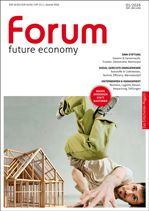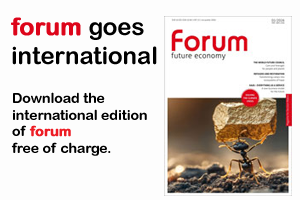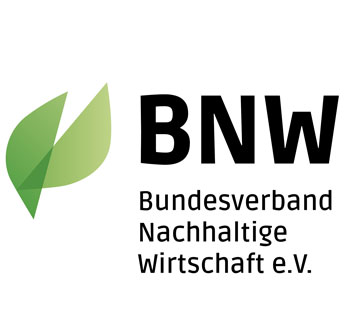Umwelt | Wasser & Boden, 16.06.2025
Nations urged to unlock a trillion-dollar land restoration economy
Investing in land restoration: Key to environmental recovery
On Desertification and Drought Day 2025, the UN urges nations to seize the opportunity of a trillion-dollar land restoration economy, warning that continued degradation could cost the global economy $880 billion annually. With Africa and Latin America leading the charge, the world is called to invest in healing 1.5 billion hectares of land to ensure a sustainable future for people, economies, and ecosystems.
 If we continue business as usual, land almost the size of South America (16 million square kilometres) will show continued degradation by 2050. Yet, bringing 1.5 billion hectares of land back to health could unlock a trillion-dollar restoration economy, the United Nations noted on this year's Desertification and Drought Day, urging world’ leaders to step up action.
If we continue business as usual, land almost the size of South America (16 million square kilometres) will show continued degradation by 2050. Yet, bringing 1.5 billion hectares of land back to health could unlock a trillion-dollar restoration economy, the United Nations noted on this year's Desertification and Drought Day, urging world’ leaders to step up action. In his message, United Nations Secretary-General António Guterres stated: "What’s good for land is good for people and economies. But humanity is degrading land at an alarming rate, costing the global economy nearly $880 billion every year —far more than the investments needed to tackle the problem.”
"I urge governments, businesses, and communities to answer the call and accelerate action on our shared global commitments on sustainable land use. We must reverse degradation, and boost finance for restoration — including by unlocking private investment,” he declared.
This call for action was highlighted during this year's global observance of Desertification and Drought Day in Bogotá, Colombia, held under the theme ‘Restore the Land. Unlock the Opportunities.’
UNCCD Executive Secretary Ibrahim Thiaw said:"This year’s observance highlights the enormous benefits of reviving our land ---benefits we can’t afford to overlook as the global population is set to reach 10 billion by 2050. There is much at stake in curbing the competition over shrinking natural resources: without nutritious food, clean water and raw materials there are no livelihoods; and without them, there can be no economic prosperity, political stability, or lasting peace. A restored land is a land of endless opportunities, and it depends on all of us to unlock them.”
Unlocking global land restoration potential
According to the latest analysis by the United Nations Convention to Combat Desertification (UNCCD), restoring one billion hectares of degraded land worldwide could generate up to US$1.8 trillion annually, with every dollar invested returning between US$7 and US$30 through improved ecosystem services and livelihoods. Already, the combined effects of land degradation and drought cost the global economy US$ 878 billion each year, three times the figure for official development assistance (ODA) in 2023.
Sub-Saharan Africa, home to 45 per cent of the world’s degraded lands, leads global land restoration commitments with more than 440 million hectares pledged, which could create up to 10 million decent land-based jobs in sustainable agriculture and forestry sectors in vulnerable areas like the Sahel.
Latin America and the Caribbean, which accounts for 14 per cent of the world’s degraded lands, has the second largest restoration target of more than 220 million hectares, showing strong potential and commitment to reviving vast swaths of degraded land.
In Western Asia and Northern Africa, where nearly 90 per cent of land is already degraded and a combination of rising temperatures, water scarcity, and stressed agricultural systems are placing increasing strain on people and ecosystems alike, more than 150 million hectares have been earmarked for restoration.
Land degradation is largely driven by deforestation, unsustainable farming, and urban sprawl; it is further exacerbated by climate change and underpinned by the dual challenges of poverty and overconsumption.
Meeting global land restoration targets requires one billion dollars a day between now and 2030, including a much bigger contribution from the private sector, which currently accounts for only 6% of the global investments to revive the world’s land as the foundation for our societies, economies, and functioning ecosystems.
Colombia puts land at the centre of development
Colombia, which hosts today’s global observance of Desertification and Drought Day, is one of the countries putting land at the centre of its development, reconciliation, and climate agenda. Land degradation affects nearly 30 per cent of its territory and more than 40 per cent of its soils are vulnerable to salinization, directly impacting the livelihoods of one in ten Colombians. Hence the urgency to conserve, sustainably manage, and revive the land.
Today, the country is restoring more than 560,000 hectares of land, expanding agroforestry systems, and advancing land use planning in rural areas. In the past five years, the country has rallied farmers, civil society, and scientists around initiatives to restore critical watersheds, encourage sustainable coffee growing and cattle raising, and improve the quality of productive soils with focus on the Caribbean and Andean regions.
The Minister of Agriculture of Colombia, Martha Carvajalino, emphasized the country’s integrated approach to land reform and restoration: "In Colombia, we know that equitable land distribution is not enough; we must also heal our land and soils. Around the world, land restoration lays the foundation for food security and employment, underpins climate and biodiversity action; and is essential to cementing peace and democracy. As we host the global observance of Desertification and Drought Day, we reiterate our commitment to prioritizing land and soil restoration in the spirit of ‘land for life’."
UNCCD Deputy Executive Secretary Andrea Meza said: "I commend Colombia for putting healthy lands at the centre of the country’s development, biodiversity, and climate agenda. Restoring the land is not only an environmental necessity, but an environmental justice imperative and a prerequisite for stability and prosperity.”
The global observance is part of the Global Land Forum, hosted by the Ministry of Agriculture and Rural Development of Colombia, the Center for Research and Popular Education/Peace Program (CINEP) as lead for a National Organizing Committee of civil society actors, the European Union and the International Land Coalition.
About UNCCD
The United Nations Convention to Combat Desertification (UNCCD) is the global vision and voice for land. We unite governments, scientists, policymakers, private sector and communities around a shared vision and global action to restore and manage the world’s land for the sustainability of humanity and the planet. Much more than an international treaty signed by 197 parties, UNCCD is a multilateral commitment to mitigating today’s impacts of land degradation and advancing tomorrow’s land stewardship in order to provide food, water, shelter and economic opportunity to all people in an equitable and inclusive manner.
About Desertification and Drought Day
Officially declared by the United Nations General Assembly in 1994, Desertification and Drought Day, marked annually on 17 June, is a unique occasion to highlight practical solutions to combating desertification, land degradation and drought. The theme of Desertification and Drought Day 2025 is "Restore the land. Unlock the opportunities,” underscoring multiple benefits linked to land restoration. The global observance of Desertification and Drought Day 2025 is hosted by Colombia. The observance was held as part of the Global Land Forum, organized by the Government of Colombia in partnership with the International Land Coalition.
Kontakt: UNCCD | press@unccd.int | www.unccd.int

forum Nachhaltig Wirtschaften heißt jetzt forum future economy
forum 01/2026
- Zukunft bauen
- Frieden kultivieren
- Moor rockt!
Kaufen...
Abonnieren...
04
FEB
2026
FEB
2026
Solarenergie, Großspeicher und Netzausbau – aber keine Gaskraftwerke!
Im Rahmen unserer Serie "Klima-Strategien"
80336 München und online
Im Rahmen unserer Serie "Klima-Strategien"
80336 München und online
10
FEB
2026
FEB
2026
11
FEB
2026
FEB
2026
BootCamp Impact Business Design
Professional Training zum Update Ihrer Transformationsskills
81371 München
Professional Training zum Update Ihrer Transformationsskills
81371 München
Anzeige

Professionelle Klimabilanz, einfach selbst gemacht

Einfache Klimabilanzierung und glaubhafte Nachhaltigkeitskommunikation gemäß GHG-Protocol
LOHAS & Ethischer Konsum
 "Du sollst konsumieren!"
"Du sollst konsumieren!"Für Christoph Quarch ist der Black Friday ein schwarzer Tag
Jetzt auf forum:
Rat für Nachhaltige Entwicklung neu berufen
Sperrmüll vs. Entrümpelungsfirma: Wann lohnt sich professionelle Hilfe?
Das große Aufwachen nach Davos
BAUExpo 2026 vom 20. bis 22. Februar in Gießen
Lichtblicke für die Landwirtschaft: Nachhaltige LED-Technologien im Einsatz



















